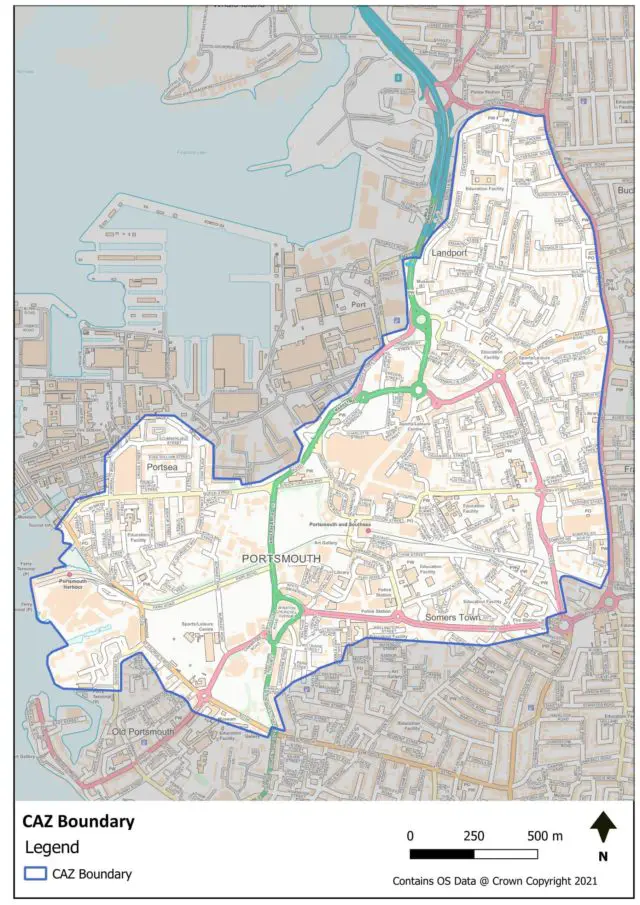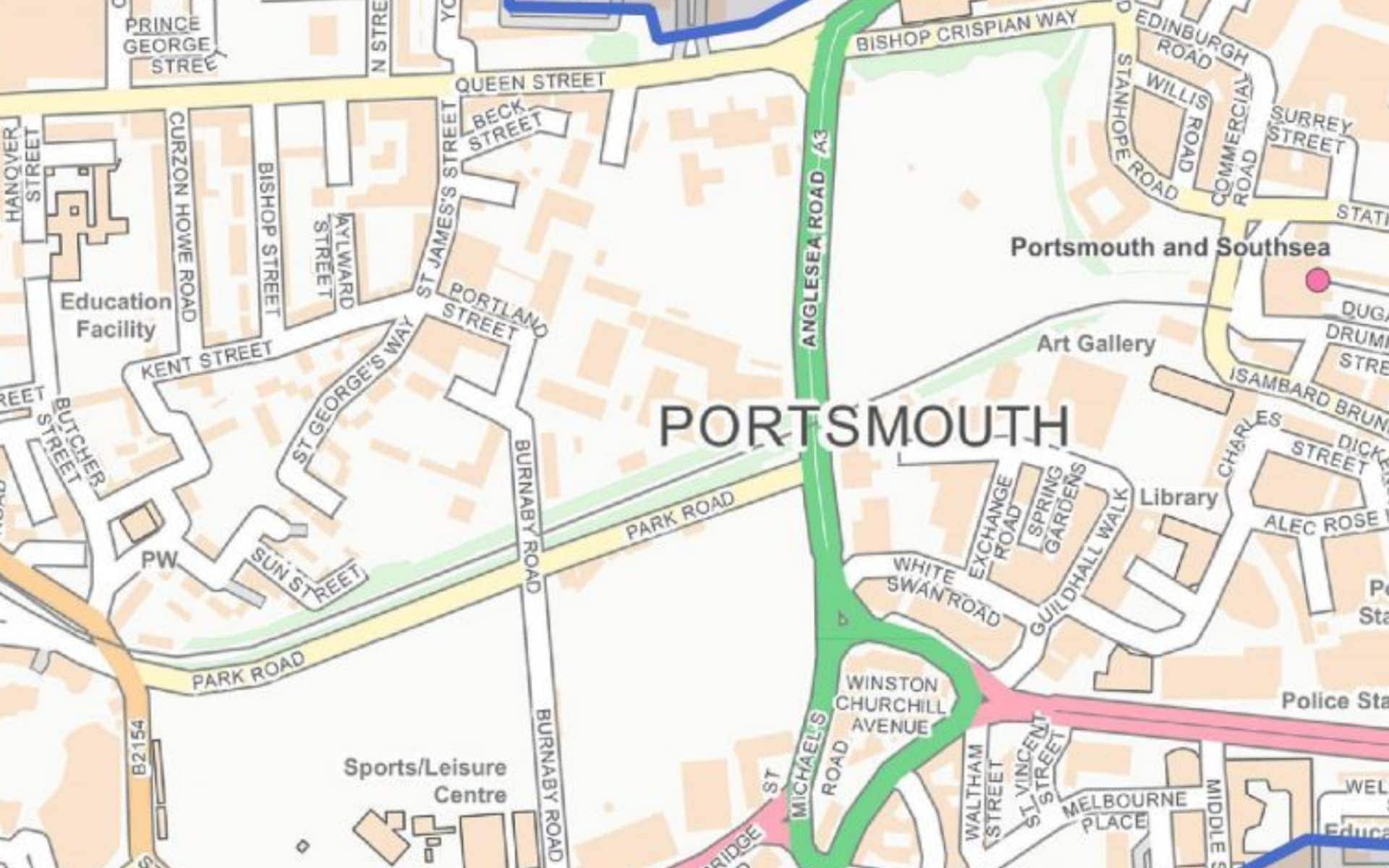A chargeable clean air zone in part of Portsmouth city, which those taking the Wightlink ferry have to drive through, is a step closer to being implemented with £6.6m of funding from government.
The cash has been awarded to Portsmouth City Council to create a class B zone in the south west of Portsea Island that will charge heavy goods vehicles, coaches, buses, taxis and private hire vehicles of a certain age to enter.
Number plate recognition
Of the cash, £3.4m will cover the cost of installing number plate recognition cameras and signs, and a further £3.2m will cover grants for affected drivers to allow them to either retrofit or upgrade their vehicles.
It is planned the government-imposed zone, that will begin operating in November this year, will bring levels of air pollution in Portsmouth to ‘compliant levels.’
Who will be charged?
Vehicles that will be charged include diesel vehicles that don’t meet Euro 6 emissions standards and petrol vehicles that don’t meet Euro 4 emissions standards.
The charge will be £10 a day for non-compliant taxis and private hire vehicles, and £50 a day for HGVs, buses and coaches.

Turton: It is important we all take action
Pam Turton, the council’s assistant director for transport, said,
“Air pollution is the greatest environmental threat to public health, so it is important we all take action. Like many cities across the UK, the council is required by the government to address air pollution in the shortest possible time by introducing the clean air zone.
“Our clean air zone will go live in November 2021. Alongside this we are delivering £100m of improvements for bus, walking and cycling journeys, as well as trialling rental e-scooters, safe and secure cycle storage in residential areas and encouraging cleaner areas around schools, all to help make the air we breathe cleaner.”
Campaigner: A step in the right direction
Clean air campaigner and member of Let Pompey Breath, Tim Sheerman-Chase said the clean air zone ,”was a step in the right direction”.
But he added,
“Government is saying once compliance is met the zone can be removed. But what’s the point in spending all that money if it’s not going to be there long?
“We need something more long term. And I’m not convinced a class B zone just in the south west of the city is enough to reduce air pollution – and there’s the issue of displacement that needs to be considered.
“But once we have a zone in place that’s positive and maybe it can be adjusted if needed in time.”
Electric vehicle charging points
The £3.4m funding from government also includes £500,000 to install rapid electric vehicle charging points in the city.
At first, these will be available for drivers of electric taxis and private hire vehicles only.
Find out more
As previously reported, it it thought the zone will cost £25m to run over its predicted lifetime.
To apply for support from the clean air fund visit portsmouth.gov.uk/cleanairzone.
This article is from the BBC’s LDRS (Local Democracy Reporter Service) scheme, which News OnTheWight is part of. Read here to find about more about how that scheme works on the Island. Some alterations and additions may have been made by News OnTheWight. Ed





